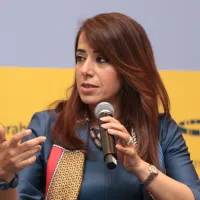A strong African voice on global financial architecture reform
26 July, 2023
The COVID-19 pandemic, the cost-of-living crisis fuelled by the war in Ukraine, the tightening of global financial conditions… Since the beginning of the new decade, Africa has been hit by a series of shocks that has stalled progress on the Sustainable Development Goals (SDGs), threatening to lead to a lost decade for the continent, rather than one of action.
62 million Africans were pushed into poverty in just one year after the COVID-19 outbreak, with an additional 18 million estimated to have joined their ranks by the end of 2022. Economies have been hit hard and many African countries are burdened with elevated levels of debt and insufficient fiscal space to make essential investments in critical infrastructure projects, education, and healthcare.
To respond to those challenges, the United Nations Economic Commission for Africa (ECA) created the Africa High-level Working Group on Global Financial Architecture (the Group) at the beginning of 2022. This group consists of African Ministers of Finance, Planning, and Economic Development, the African Union (AU), the African Development Bank (AfDB), the African Export-Import Bank (Afreximbank), the World Bank Group (WBG), and includes the participation of staff and Executive Directors of the International Monetary Fund (IMF).
The Group serves as a forum to develop reform proposals for the global financial architecture as well as to unify the African voice on the global stage. Many of the Group’s proposals have been echoed in a resolution passed by African Ministers at ECA’s Conference of Ministers in Addis Ababa in March 2023. Those proposals were also presented during the Africa Consultative Group meeting with the IMF Managing Director in Washington DC during the 2023 Spring Meetings of the WBG and the IMF. At the heart of those proposals are three key asks, centring on unlocking liquidity, reforming the global debt architecture, and enhancing representation for African countries in global financial institutions.
Reform proposals
African countries urgently require more liquidity at affordable rates
Urgent action is needed from the international community to step up funding pledges. There is a shortfall in resources for both the IMF’s and the World Bank’s concessional lending windows – the Poverty Reduction and Growth Trust (PRGT) in the case of the IMF and the International Development Association (IDA) in the case of the World Bank Group. In the case of the PRGT, a partial sale of the IMF’s gold reserves is to be considered in the medium term. To enhance the availability of resources, the Group further asks for the re-channelling of IMF’s Special Drawing Rights (SDRs) – a reserve asset designed in the 1960s to support countries with liquidity challenges – to Multilateral Development Banks (MDBs).
The Group endorses the corresponding proposal developed by the AfDB and the Inter-American Development Bank which would enable the AfDB to increase its lending capacity by up to four times the number of re-channelled SDRs. More generally, there is a need for SDRs allocation decisions to be made in a more rule-based analytical manner to reduce the discretionary and political nature of the allocation process. To ensure that SDRs are directed to countries that require them most, the Group advocates for the SDRs allocation formula, which is currently largely based on a country’s economic size and financial position, to also consider countries’ liquidity needs.
A functional debt resolution mechanism
The Group has highlighted the shortcomings in the global debt architecture and the need for countries in debt distress to have access to a functional debt resolution mechanism.
The Common Framework for Debt Treatments (the Common Framework), created by the G20 in November 2020 to provide a process for debt restructurings, must be overhauled to become more effective, time-bound, and transparent. The initial decisions reached by the Global Sovereign Debt Roundtable, co-chaired by the IMF, the WBG and India (G20 Presidency) to work on the current shortcomings in debt restructuring processes, are promising but much faster progress is necessary in the coming months. It is important to secure agreements to provide debt service standstill to applicants and extend eligibility to middle-income countries.
The Global Sovereign Debt Roundtable’s upcoming workshop will hopefully establish a clear comparability of treatment formula, which would minimise technical disputes in the future. It is also important to make bolder use of the IMF Lending into Arrears Policy (LIA), a policy that can be applied when lending to a country in default on obligations to its commercial creditors and official bilateral creditors, to reduce the leverage of holdout creditors and to provide debtor countries in distress with a line of financing to conduct necessary social expenditures.
Amplifying the voice of African countries
The Group has emphasised the vital importance of amplifying the voice of African countries. At the IMF, the entire African continent – with a population of over 1.4 billion – has a comparable quota share and thereby voting power to Germany, which has a population of 83 million. To address these imbalances, the quota formula needs to be reformed, by creating a new category that considers a country's vulnerability and not be solely based on members’ relative economic size and financial position. Furthermore, the Group strongly advocates for the African Union to finally obtain a permanent seat in the G20. This would further strengthen Africa’s position on the global stage and allow the continent to fully participate in discussions on G20 initiatives such as the Common Framework.
The Africa High-level Working Group on the Global Financial Architecture’s proposals shows that viable solutions exist to allow the Continent to reach its Sustainable Development Goals (SDGs). African Ministers know what they want and are collectively advocating for change. To pave the way for a prosperous and sustainable future for all, the international community needs to listen and act now.



